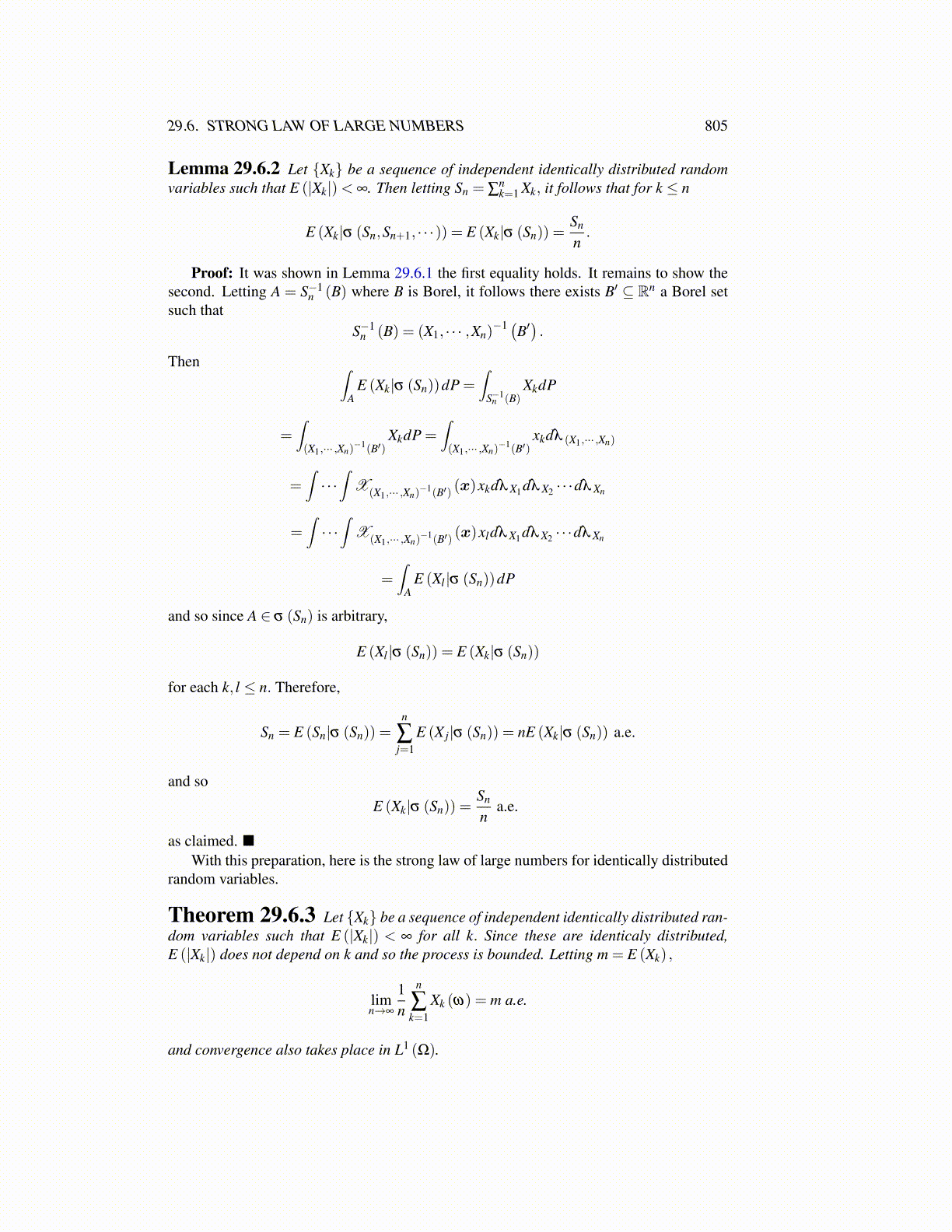
29.6. STRONG LAW OF LARGE NUMBERS 805
Lemma 29.6.2 Let {Xk} be a sequence of independent identically distributed randomvariables such that E (|Xk|)< ∞. Then letting Sn = ∑
nk=1 Xk, it follows that for k ≤ n
E (Xk|σ (Sn,Sn+1, · · ·)) = E (Xk|σ (Sn)) =Sn
n.
Proof: It was shown in Lemma 29.6.1 the first equality holds. It remains to show thesecond. Letting A = S−1
n (B) where B is Borel, it follows there exists B′ ⊆ Rn a Borel setsuch that
S−1n (B) = (X1, · · · ,Xn)
−1 (B′) .Then ∫
AE (Xk|σ (Sn))dP =
∫S−1
n (B)XkdP
=∫(X1,··· ,Xn)
−1(B′)XkdP =
∫(X1,··· ,Xn)
−1(B′)xkdλ (X1,··· ,Xn)
=∫· · ·∫
X(X1,··· ,Xn)
−1(B′) (x)xkdλ X1dλ X2 · · ·dλ Xn
=∫· · ·∫
X(X1,··· ,Xn)
−1(B′) (x)xldλ X1dλ X2 · · ·dλ Xn
=∫
AE (Xl |σ (Sn))dP
and so since A ∈ σ (Sn) is arbitrary,
E (Xl |σ (Sn)) = E (Xk|σ (Sn))
for each k, l ≤ n. Therefore,
Sn = E (Sn|σ (Sn)) =n
∑j=1
E (X j|σ (Sn)) = nE (Xk|σ (Sn)) a.e.
and so
E (Xk|σ (Sn)) =Sn
na.e.
as claimed. ■With this preparation, here is the strong law of large numbers for identically distributed
random variables.
Theorem 29.6.3 Let {Xk} be a sequence of independent identically distributed ran-dom variables such that E (|Xk|) < ∞ for all k. Since these are identicaly distributed,E (|Xk|) does not depend on k and so the process is bounded. Letting m = E (Xk) ,
limn→∞
1n
n
∑k=1
Xk (ω) = m a.e.
and convergence also takes place in L1 (Ω).